Infection‑Sleep Quiz
Infection is a biological invasion by pathogens such as viruses, bacteria, fungi or parasites that provokes an immune response. When an infection takes hold, its ripple effects reach far beyond fever and sore throat. One of the most overlooked outcomes is a disruption of sleep. This article unpacks the infections and sleep disorders link, shows why certain bugs make you toss and turn, and offers evidence‑based ways to keep your nights restorative.
Why the Immune System Messes with Your Mattress
The bridge between infection and sleeplessness is the immune system a network of cells, proteins and organs that defends the body against pathogens. When a bug enters, immune cells release inflammatory cytokines signaling proteins such as IL‑1β, TNF‑α and IL‑6 that coordinate inflammation. These cytokines have a dual life: they fight infection but also act on the brain’s sleep‑regulating centers.
- IL‑1β and TNF‑α increase deep (non‑REM) sleep early in infection, a protective ‘sickness sleep’.
- Prolonged elevation leads to fragmented sleep, reduced REM, and daytime fatigue.
- Cytokine surges can suppress melatonin the hormone that signals darkness to the brain, shifting circadian rhythms.
Pathogen Profiles: How Different Infections Shape Sleep
Not all bugs affect sleep the same way. Below is a quick snapshot of the most common culprits and the sleep disturbances they trigger.
| Infection Type | Typical Pathogen | Sleep Effect | Key Cytokine |
|---|---|---|---|
| Bacterial | Streptococcus pneumoniae | Severe insomnia, early‑night awakenings | IL‑6 |
| Viral | Influenza A | Increased non‑REM sleep first 48‑hrs, then fragmented REM | TNF‑α |
| Viral | COVID‑19 (SARS‑CoV‑2) | Long‑lasting fatigue, restless‑leg‑like sensations | IL‑1β |
| Parasitic | Toxoplasma gondii | Altered circadian preferences, delayed sleep phase | IFN‑γ |
These patterns matter because they guide clinicians on whether to target inflammation, hormone balance, or the underlying pathogen.
Sleep Disorders Most Commonly Linked to Infections
When you hear "infection", you might picture a cough, not a night‑time nightmare. Yet research consistently ties several sleep disorders to acute or chronic infections.
- Insomnia difficulty falling or staying asleep - spikes after viral flu or bacterial pneumonia due to cytokine overdrive.
- Obstructive sleep apnea (OSA) repeated airway collapse during sleep - upper‑airway inflammation from sinus infections worsens airway resistance.
- Restless legs syndrome (RLS) uncomfortable urges to move the legs at night - iron‑sequestering cytokines in chronic infections can trigger RLS.
- Chronic fatigue syndrome (CFS) prolonged exhaustion not relieved by rest - often follows Epstein‑Barr or other viral infections, linked to lingering cytokine elevation.
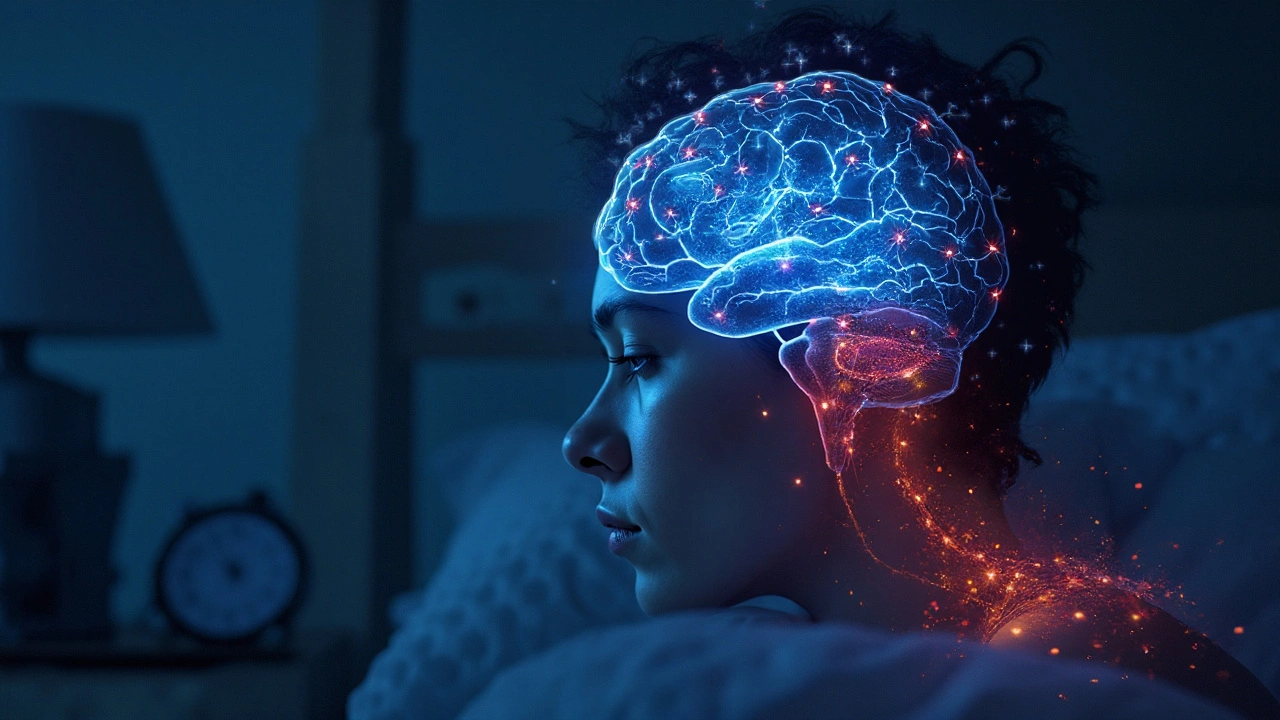
Biological Mechanisms Behind the Disruption
Understanding the "how" helps you intervene intelligently.
- Cytokine‑induced brain signaling: IL‑1β binds to receptors in the hypothalamus, altering the sleep‑wake switch.
- Melatonin suppression: Fever‑induced hyperthermia reduces pineal melatonin output, shifting the circadian rhythm the roughly 24‑hour internal clock governing sleep, hormone release and metabolism.
- Blood‑brain barrier permeability: Inflammation can loosen the barrier, allowing peripheral immune molecules to affect neuronal circuits.
- Metabolic demand: Fighting infection raises basal metabolic rate, leading to early‑morning awakenings as the body seeks more energy.
Practical Steps to Protect Your Sleep During an Illness
Even if you’re battling a bug, you can still give your brain a fighting chance.
- Control temperature: Keep the bedroom cool (18‑20°C) to counter fever‑related hyperthermia.
- Support melatonin: Dim lights an hour before bedtime, avoid blue‑light screens, and consider a low‑dose melatonin supplement (0.5‑1mg) after consulting a doctor.
- Manage inflammation: Anti‑inflammatory foods (turmeric, omega‑3s) and, when appropriate, NSAIDs can blunt cytokine spikes.
- Stay hydrated: Proper fluids help flush toxins and reduce nasal congestion that worsens OSA.
- Address iron: If you have a chronic infection, test ferritin; supplementing iron may ease RLS symptoms.
Emerging Research and What the Future Holds
Scientists are now mapping the exact cytokine‑sleep circuitry with neuroimaging, and a few promising trials are underway.
- Targeted cytokine blockers: Trials using IL‑6 antibodies (e.g., tocilizumab) show reduced insomnia scores in COVID‑19 patients.
- Chronotherapy: Timing antiviral medication to coincide with the body’s natural dip in melatonin may lessen sleep disruption.
- Microbiome‑sleep axis: Gut bacteria modulate systemic inflammation; probiotic blends are being tested for post‑infection sleep restoration.
These advances could soon turn “sick‑night” from inevitable into manageable.
Related Concepts and Next Steps
While this piece focuses on the infection‑sleep link, it sits inside a broader health knowledge cluster. You might also explore:
- Immune‑mediated neurological disorders - how auto‑immunity affects cognition.
- Chronobiology - the science of biological timing beyond sleep.
- Post‑viral fatigue syndromes - long‑term recovery strategies.
Each of these topics deepens the picture of how our bodies balance defense and rest.
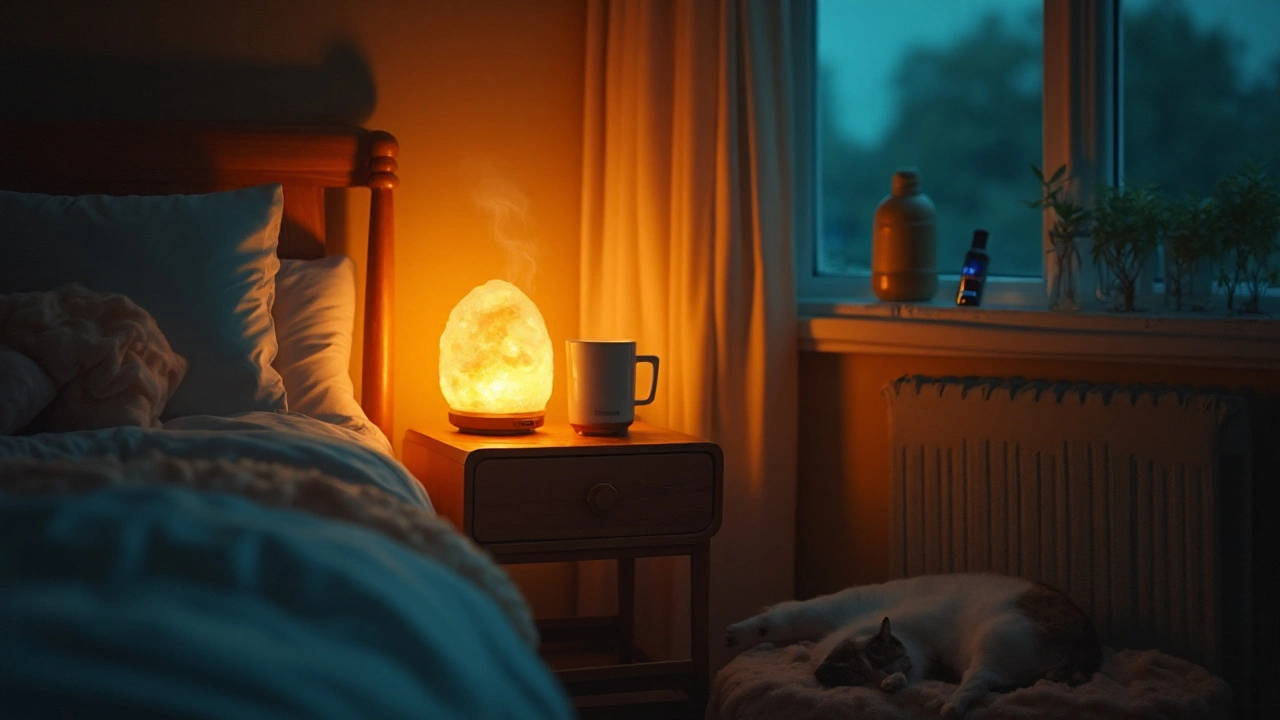
Frequently Asked Questions
Can a cold really make me lose sleep?
Yes. Even a mild viral upper‑respiratory infection raises cytokines like IL‑1β, which can fragment sleep and reduce REM. Nasal congestion also forces mouth breathing, which worsens snoring and can trigger mild apnea.
Why do I feel exhausted weeks after COVID‑19?
Post‑COVID fatigue often stems from lingering low‑grade inflammation and disrupted melatonin cycles. The brain’s sleep centers stay in a heightened alert state, leading to chronic daytime sleepiness despite normal night‑time duration.
Should I take melatonin if I have a fever?
A small low‑dose (0.5mg) can help reset the clock, but only after checking with a physician. High fevers already raise body temperature, which naturally suppresses melatonin; adding a supplement may improve sleep without interfering with the immune response.
Is insomnia during an infection a sign of a serious problem?
Occasional insomnia is common and usually resolves as the infection clears. Persistent insomnia beyond two weeks, especially with high fevers or neurological symptoms, warrants medical evaluation for complications such as meningitis or severe systemic inflammation.
Can anti‑inflammatory diets improve sleep when I’m sick?
Evidence suggests that foods rich in omega‑3 fatty acids, antioxidants, and polyphenols can blunt cytokine spikes, which often translates to less fragmented sleep. A simple broth, berries, leafy greens, and a handful of walnuts make a night‑time friendly anti‑inflammatory menu.

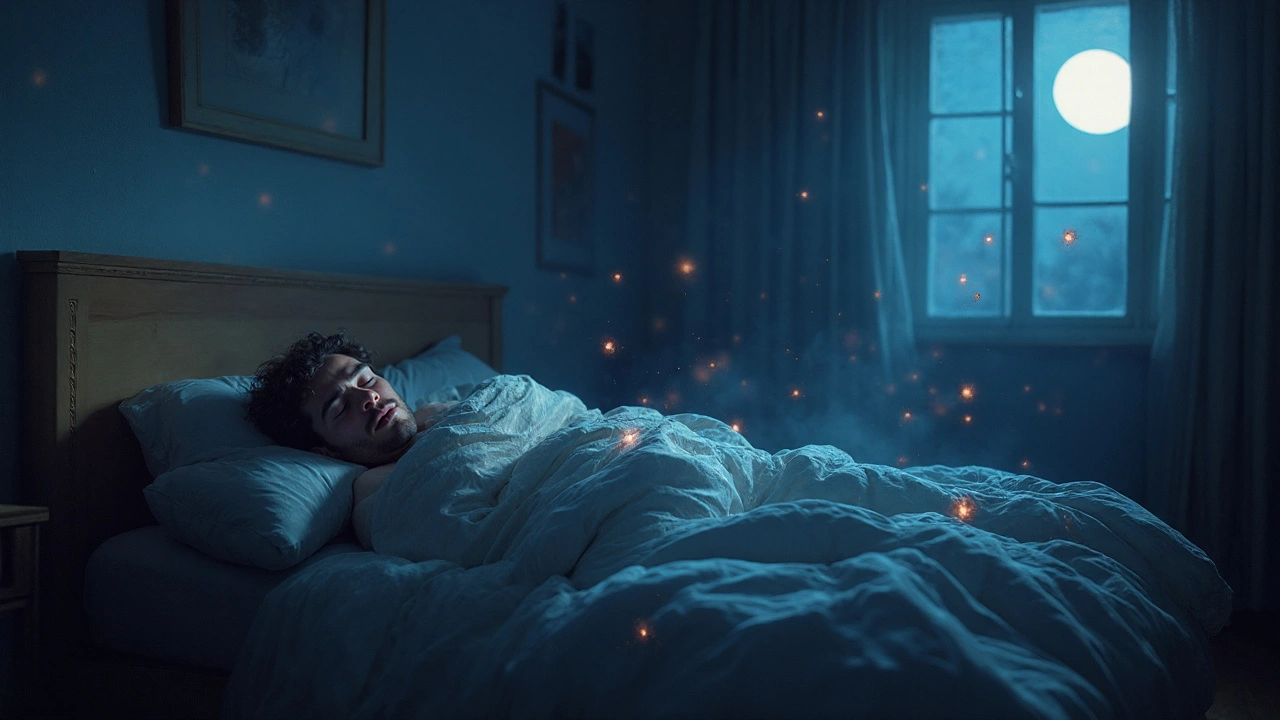
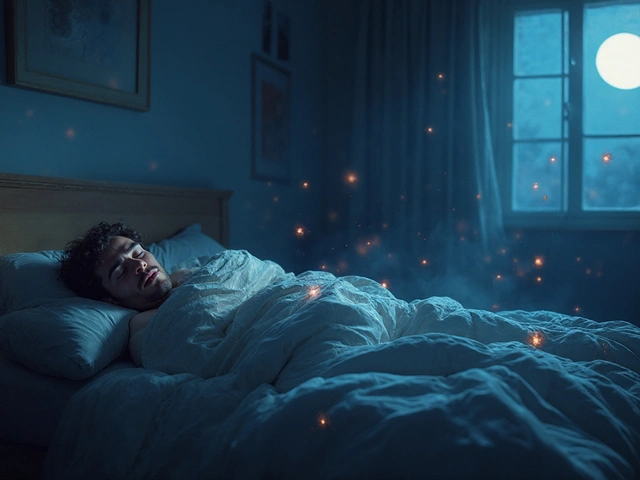


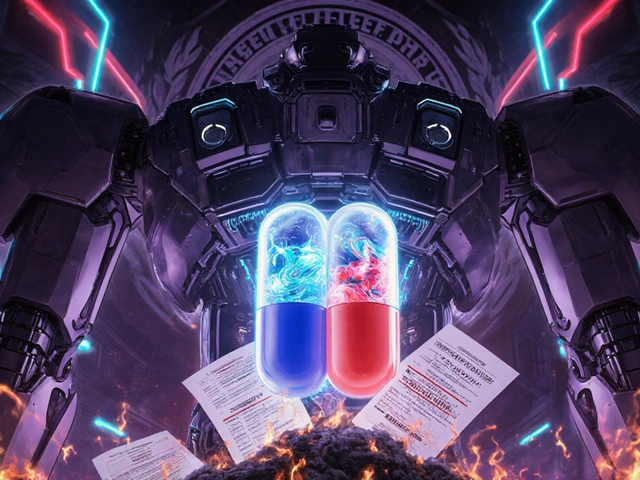
Post A Comment